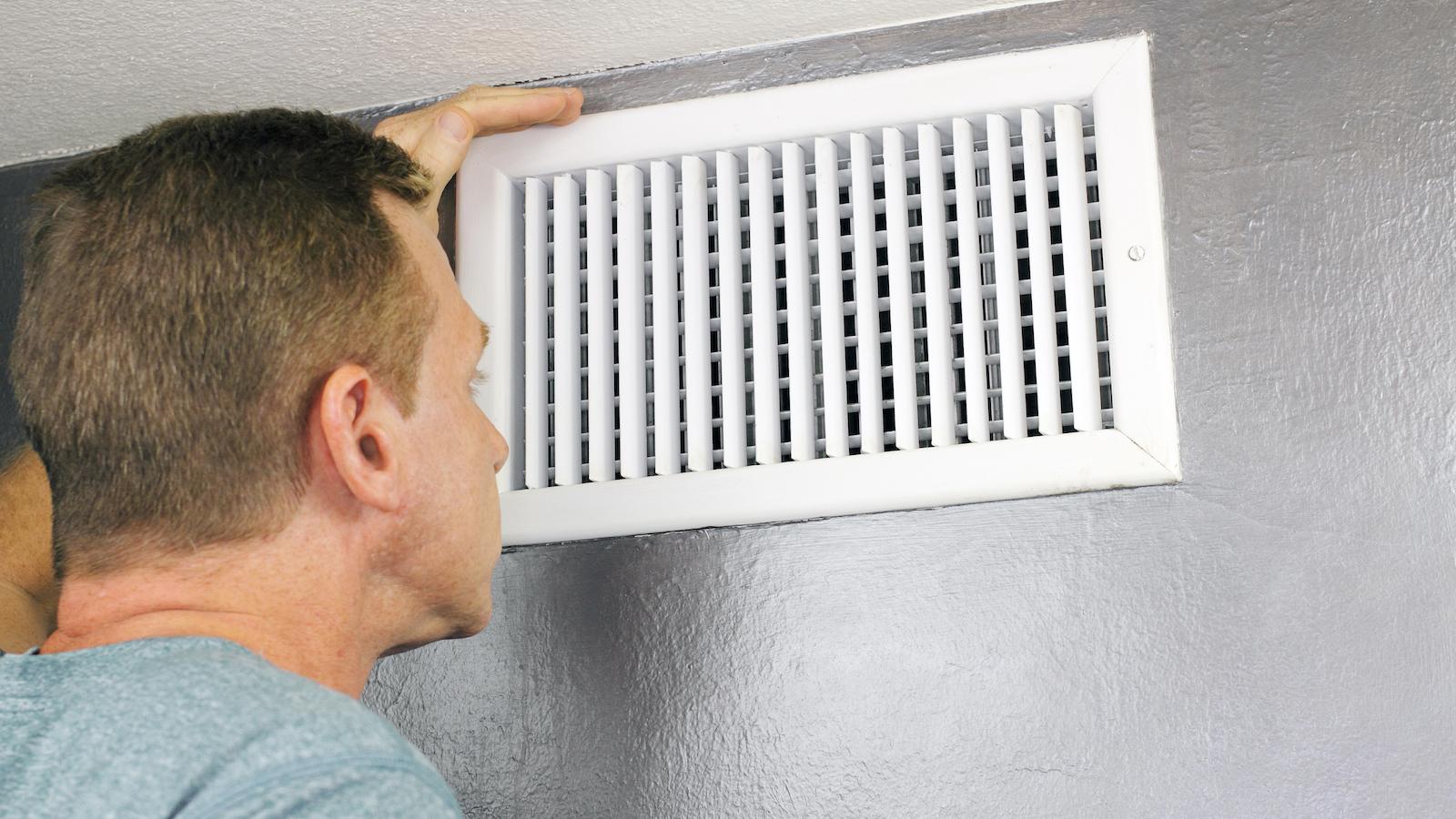

Articles
Why Does My HVAC Smell
Modified: March 22, 2024
Discover articles on why your HVAC system might emit unpleasant smells and learn effective solutions to keep your indoor air fresh and clean.
(Many of the links in this article redirect to a specific reviewed product. Your purchase of these products through affiliate links helps to generate commission for Storables.com, at no extra cost. Learn more)
Introduction
When you turn on your HVAC system, the last thing you want is for unpleasant odors to fill your home. Foul smells emanating from your heating, ventilation, and air conditioning (HVAC) system can be both bothersome and concerning. Not only can they create an uncomfortable living environment, but they can also indicate underlying issues that require attention.
Understanding the common causes of HVAC smells and knowing how to address them can help you eliminate odors and ensure that your home remains fresh and clean. In this article, we will explore the various reasons behind HVAC smells and provide practical steps to tackle them.
Key Takeaways:
- Regularly cleaning or replacing air filters, inspecting and cleaning vents, and clearing clogged condensate drains are essential maintenance tasks that can significantly improve air quality and eliminate HVAC odors.
- Identifying the source of the smell and taking targeted actions, such as addressing electrical issues promptly and maintaining proper humidity levels, can help ensure a fresh and comfortable living environment.
Read more: Why Does My Duvet Smell
Common Causes of HVAC Smells
There are several reasons why your HVAC system may emit unpleasant odors. Here are some of the most common causes:
- Dirty Air Filters: Over time, air filters can accumulate dirt, dust, and other debris. When these particles build up, they can create a musty or stale smell as air passes through the filter. Regularly replacing or cleaning your air filters can prevent this issue.
- Mold or Mildew Growth: Excessive moisture in your HVAC system can lead to mold or mildew growth, which can produce a musty or damp odor. This can occur in areas such as the evaporator coil, condensate drain, or air ducts. Proper ventilation and regular cleaning can help prevent mold and mildew buildup.
- Electrical Issues: If you notice a burning or metallic smell coming from your HVAC system, it could indicate an electrical problem. Faulty wiring or components can cause overheating, resulting in these odors. It is crucial to address electrical issues promptly to prevent potential hazards.
- Gas Leaks: If you detect a rotten egg or sulfur-like smell near your furnace or HVAC unit, it may be a sign of a gas leak. Gas leaks are dangerous and require immediate attention. Leave the area immediately and contact a professional to resolve the issue.
- Blocked or Dirty Condensate Drain: The condensate drain removes excess moisture from your HVAC system. However, if it becomes clogged or dirty, stagnant water can accumulate, leading to a foul smell. Regularly inspecting and cleaning the condensate drain can prevent this issue.
- Dead Animals or Pest Infestations: Unfortunately, small animals or pests can sometimes find their way into your HVAC system. If you notice a strong, pungent smell, it could be due to the presence of a deceased animal or a pest infestation. Professional pest control services may be necessary to address this problem.
- Burning Smell from Furnace: When you turn on your furnace for the first time after a long period of inactivity, such as in the winter, you may experience a burning smell. This is usually attributed to dust burning off the heating elements and is normal. However, if the smell persists, it could indicate a more significant issue that requires attention.
- Chemical Odors from HVAC Components: Some HVAC components, such as coils and fan belts, may emit chemical odors when they are brand new or when they are exposed to high heat. These odors should dissipate over time, but if they persist or intensify, it is advisable to consult a professional.
- Dirty or Clogged Air Ducts: Over time, air ducts can accumulate dust, allergens, and other debris. This buildup can result in musty smells when air circulates through the ducts. Professional duct cleaning can help eliminate odors and improve indoor air quality.
- Excessive Humidity or Stagnant Water: High humidity levels or standing water near your HVAC system can create a damp, musty smell. This can occur due to issues with drainage, leaks, or poor ventilation. Addressing the source of excess moisture is crucial to prevent mold growth and eliminate odors.
Identifying the specific source of the odor is essential in determining the appropriate solution. In the next section, we will discuss how to identify the source of the smell in your HVAC system.
Dirty Air Filters
Dirty air filters are one of the most common causes of unpleasant odors in HVAC systems. Air filters are designed to trap dust, dirt, pollen, and other airborne particles. Over time, these particles accumulate on the filter, restricting airflow and reducing the filter’s effectiveness.
When air passes through a dirty filter, the trapped particles can create a musty or stale smell. In addition to causing odor, dirty air filters can also lead to reduced indoor air quality and affect the efficiency of your HVAC system.
To address this issue, it is important to regularly check and replace your air filters. The frequency of filter replacement depends on various factors, such as the type of filter used, the level of pollution in your area, and the number of occupants in your home.
As a general guideline, disposable fiberglass or pleated filters should be replaced every one to three months. If you have washable filters, follow the manufacturer’s instructions for proper cleaning and maintenance.
When replacing or cleaning the air filter, make sure to turn off your HVAC system to prevent any potential damage. Carefully remove the old filter and dispose of it properly. If you have a reusable filter, follow the manufacturer’s instructions to clean it thoroughly.
Insert the new or cleaned filter into the designated slot, ensuring that it is properly positioned and securely in place. Turn your HVAC system back on and allow it to run for a few minutes to check if the odor has been eliminated.
Regularly changing and maintaining your air filters not only helps eliminate HVAC odors but also improves the overall air quality in your home. It allows for better airflow, reduces strain on your HVAC system, and helps increase energy efficiency.
If the smell persists even after changing the air filters, it is recommended to investigate further for other possible causes of the odor.
Mold or Mildew Growth
Mold and mildew growth in HVAC systems is a common cause of unpleasant odors. These fungi thrive in environments with high humidity and can easily develop in areas such as the evaporator coil, condensate drain, or air ducts.
When moisture accumulates in these areas, it creates the perfect breeding ground for mold and mildew. As they grow, they release volatile organic compounds (VOCs), which emit a musty or damp odor.
If you notice a persistent musty smell when your HVAC system is running, it is likely indicative of mold or mildew. In addition to the odor, mold and mildew can negatively impact indoor air quality and pose health risks, especially for individuals with respiratory conditions or allergies.
To address mold or mildew growth, it is essential to first identify the affected areas. Start by inspecting the evaporator coil, the component responsible for cooling the air in your HVAC system. If the coil appears dirty or covered in mold or mildew, it may require professional cleaning.
Next, check the condensate drain, which is responsible for removing excess moisture from the system. If the drain is clogged or dirty, stagnant water can accumulate and promote mold growth. Clearing the condensate drain and ensuring proper drainage is crucial in preventing mold and eliminating associated odors.
In some cases, mold or mildew may develop within the air ducts themselves. This can occur if there are leaks or excessive moisture in the ductwork. Professional duct cleaning can help remove mold and mildew, improving air quality and eliminating odors.
To prevent mold or mildew growth in your HVAC system, it is important to maintain proper humidity levels in your home. Use a dehumidifier if necessary, especially in areas prone to high humidity. Additionally, ensure proper ventilation in your HVAC system to minimize moisture buildup.
If you suspect mold or mildew growth in your HVAC system, it is recommended to consult a professional HVAC technician who can assess the situation, provide necessary cleaning or repairs, and offer advice on preventive measures. They have the expertise and equipment to safely address mold and mildew issues and ensure the proper functioning of your HVAC system.
Electrical Issues
If you detect a burning or metallic smell coming from your HVAC system, it could indicate an electrical problem. Faulty wiring or components can overheat, causing these distinct odors. Ignoring electrical issues can be dangerous and may lead to system malfunctions or even fires, so prompt attention is crucial.
Electrical odors can stem from various sources within the HVAC system, such as damaged wires, malfunctioning capacitors, or faulty motors. When these components experience excessive heat or electrical arcing, the smells can become noticeable.
If you notice an electrical odor, it is important to take immediate action. Start by turning off your HVAC system and cutting off power to it. This will help prevent any further damage or potential hazards.
Next, contact a qualified HVAC technician to inspect and diagnose the electrical issue. Attempting to repair electrical problems yourself can be dangerous, so it is best to leave it to the professionals who have the proper knowledge and tools.
During the inspection, the technician will assess the wiring, electrical connections, and components of your HVAC system. They will identify any damaged or faulty parts and recommend the necessary repairs or replacements.
Prevention is key when it comes to electrical issues. Regular maintenance and inspections of your HVAC system can help identify and address potential electrical problems before they escalate. This includes checking for loose or frayed wires, ensuring proper connections, and testing the operation of electrical components.
Remember, electrical issues can pose serious risks, so it is important to address them promptly. By taking swift action and seeking professional assistance, you can ensure the safety and proper functioning of your HVAC system.
Read more: Why Does My Blender Smell
Gas Leaks
If you notice a rotten egg or sulfur-like smell near your furnace or HVAC unit, it may indicate a gas leak. Gas leaks are extremely dangerous and should be taken very seriously. Natural gas is odorless, but utilities add a distinct smell to make it detectable.
A gas leak can occur if there is a problem with the gas line, connectors, or valves in your HVAC system. The smell is caused by the presence of mercaptan, a sulfur-based compound added to natural gas. If you suspect a gas leak, follow these crucial steps:
- Evacuate: If you detect the distinct smell of gas, immediately evacuate everyone from the premises. Do not use anything that could create a spark, including electrical switches or lighters.
- Open Windows and Doors: As you leave, open all windows and doors to allow fresh air to circulate and vent the gas.
- Shut Off the Gas: Locate the main gas shut-off valve and turn it off. This is usually located at the gas meter. If you cannot access the valve or are unsure, contact your utility company for assistance.
- Call Emergency Services: Once safely outside, call your local emergency services or the gas company to report the gas leak. They will provide guidance and send professionals to assess and resolve the issue.
- Do Not Re-enter: Do not re-enter your home until emergency responders or qualified professionals have deemed it safe to do so.
Gas leaks pose a significant risk of fire, explosion, and asphyxiation, so it is imperative to prioritize safety and follow the appropriate protocols. Gas leaks require immediate attention from professionals who have the necessary expertise and equipment to detect and repair the leak.
It is essential to have regular maintenance and inspections of your HVAC system to ensure that the gas lines, connectors, and valves are in good condition. This can help detect and prevent gas leaks before they become hazardous.
Remember, if you detect the distinct smell of gas, prioritize your safety and the safety of others by following the proper procedures and seeking professional assistance immediately.
Blocked or Dirty Condensate Drain
The condensate drain in your HVAC system plays a crucial role in removing excess moisture. However, if this drain becomes blocked or dirty, it can lead to unpleasant odors.
As your HVAC system cools the air, it also removes humidity, causing condensation to form. This condensation is collected and drained away via the condensate drain. Over time, dirt, debris, and algae can accumulate in the drain, obstructing the flow of water. This stagnant water can then emit a foul odor.
To address a blocked or dirty condensate drain, follow these steps:
- Turn off the HVAC System: Before you begin any maintenance, turn off your HVAC system to avoid potential damage.
- Locate the Drain Line: The condensate drain line is typically located near the indoor unit of your HVAC system. It is a plastic or PVC pipe that carries the condensed water to a drain or outdoors.
- Clear the Drain Line: Use a wet/dry vacuum or a stiff brush to remove any visible debris from the opening of the drain line. Be careful not to damage the drain pipe.
- Clean the Drain Pan: Locate the drain pan, which is where the condensation collects before flowing into the drain. Remove any standing water or debris from the pan and clean it thoroughly with a mild detergent and water.
- Flush the Drain Line: After clearing the exterior opening and cleaning the drain pan, it is essential to flush the drain line to remove any remaining blockages. You can use a mixture of equal parts water and vinegar or a specialized condensate line cleaner. Pour the solution into the drain line and let it sit for a few minutes before flushing it with water.
- Monitor and Maintain: Regularly inspect the condensate drain line and pan for any signs of blockages or buildup. Consider using a condensate drain pan treatment to prevent the growth of algae and mold.
Maintaining a clean and clear condensate drain will not only eliminate odors but also prevent potential water damage and mold growth. However, if you encounter persistent issues or notice water leaks, it is best to consult a professional HVAC technician for further inspection and assistance.
By taking proactive steps to maintain your condensate drain, you can ensure the proper functioning of your HVAC system and enjoy a fresh and odor-free home.
Dead Animals or Pest Infestations
Unpleasant odors coming from your HVAC system can sometimes be attributed to the presence of dead animals or pest infestations. Small animals or pests may find their way into your HVAC system, seeking shelter or accidentally getting trapped.
If you notice a strong, pungent smell that resembles decay or rotting in your home when your HVAC system is running, it could indicate the presence of a deceased animal. The smell may occur intermittently or persistently, depending on the stage of decomposition and the animal’s location within the system.
In addition to the odor, you may also notice other signs of a pest infestation, such as droppings, gnaw marks, or scratching noises. Common pests that can infiltrate HVAC systems include rodents, insects, and birds.
Dealing with dead animals or pest infestations in your HVAC system requires professional assistance. Attempting to remove or handle carcasses yourself can be unhygienic and may spread bacteria or parasites.
Contact a licensed pest control professional or HVAC technician with experience in handling animal or pest-related issues. They have the knowledge, tools, and skills to safely locate and remove the deceased animal, as well as treat and prevent further pest infestations.
Prevention is key to avoiding future occurrences. Here are some preventive measures to consider:
- Seal Entry Points: Inspect your home for any gaps, cracks, or openings that pests could use to gain entry. Seal these entry points to prevent animals or pests from accessing your HVAC system.
- Trim Vegetation: Keep vegetation, trees, and shrubs trimmed and away from your home. Overgrown branches can provide easy access for pests and animals.
- Maintain a Clean Environment: Keep your home clean and free of food debris that may attract pests. Regularly clean areas around your HVAC unit and remove any clutter or nesting materials.
- Schedule Regular Pest Control: Consider scheduling routine pest control inspections and treatments to prevent pest infestations in and around your home.
- Install Protective Measures: Install grates or mesh screens over vents and openings to prevent animals from entering your HVAC system.
By taking preventive measures and promptly addressing any signs of pest infestations or deceased animals, you can maintain a fresh and odor-free HVAC system.
Regularly changing your HVAC filter can help reduce odors by preventing buildup of dust, dirt, and other particles that can cause unpleasant smells.
Burning Smell from Furnace
Experiencing a burning smell when you turn on your furnace for the first time after a long period of inactivity, such as at the start of the heating season, is relatively common and often harmless. This smell is typically attributed to dust that has settled on the heating elements and other internal components.
When the furnace heats up, the accumulated dust burns off, creating a temporary burning smell. This odor should dissipate within a few minutes as the system continues to operate. However, if the smell persists or intensifies, it may indicate a more significant issue.
There are a few potential causes for a persistent burning smell from your furnace:
- Dusty Air Ducts: If your air ducts have accumulated a significant amount of dust and debris, turning on the furnace can cause these particles to burn, resulting in a lingering odor. Consider having your air ducts professionally cleaned to eliminate the source of the smell.
- Blocked Air Vents: Obstructed air vents can cause improper air circulation, leading to overheating in certain areas of the furnace. This can result in a burning smell. Make sure all vents and registers are clear of obstructions, such as furniture or curtains.
- Faulty Components: In some cases, a burning smell may indicate a malfunctioning component within the furnace. This could include a faulty motor, wiring issues, or a failing belt. It is advisable to contact an HVAC technician to inspect your furnace and identify the specific cause.
If you experience a burning smell from your furnace, follow these steps:
- Check for Safety: Ensure that there are no signs of smoke, sparks, or flames coming from the furnace. If you notice any indications of a fire or electrical issue, immediately turn off the furnace and contact a professional.
- Observe and Monitor: If the smell seems to be harmless and dissipates after a few minutes, continue to observe your furnace and monitor for any unusual behavior or recurring odors.
- Consult a Professional: If the burning smell persists or you are concerned about the safety of your furnace, it is best to consult a qualified HVAC technician. They can assess the situation, identify any underlying issues, and perform any necessary repairs or maintenance.
Regular maintenance of your furnace, including annual inspections, can help prevent and address potential issues that may cause a burning smell. By taking proper care of your heating system, you can ensure its efficient and safe operation.
Read more: Why Does My Dresser Smell
Chemical Odors from HVAC Components
Chemical odors emanating from HVAC components can be concerning, especially if they are persistent or intensify over time. These odors are often associated with newly installed components or the exposure of existing components to high temperatures or certain substances.
Several HVAC components can emit chemical odors under certain circumstances:
- Coils: The coils in your HVAC system, particularly the evaporator coil, may release a chemical smell when they are brand new or exposed to high heat. This is a result of the protective coatings or oils used during the manufacturing process. The odor should diminish as the components break in and the coatings cure.
- Fan Belts: If your HVAC system utilizes fan belts, they may emit a chemical odor when they are new or when they heat up due to friction. This smell should dissipate as the belts wear in.
- Electrical Components: Electrical components, such as transformers or capacitors, can also produce chemical odors when they are new or when they generate heat. These odors should diminish as the components settle and operate for some time.
- Refrigerant Leaks: On rare occasions, a chemical odor can stem from a refrigerant leak in your HVAC system. Refrigerant has a distinct smell and can be harmful if inhaled. If you suspect a refrigerant leak, turn off your HVAC system and seek professional assistance immediately.
In most cases, these chemical odors are harmless and will dissipate over time. However, if the odor persists or becomes increasingly strong, it is advisable to consult a professional HVAC technician for a thorough inspection.
If you have recently installed a new HVAC system or replaced certain components, give them time to settle and allow any temporary odors to subside. Proper ventilation and running the system regularly can help expedite this process.
It is important to note that if the chemical odors are accompanied by other issues, such as unusual noises, system malfunctions, or a decline in indoor air quality, it may indicate a more significant problem. In such cases, professional assistance should be sought to identify and address the underlying issue.
Regular maintenance of your HVAC system, including scheduled inspections and cleanings, can help prevent and mitigate chemical odors. By addressing any concerns promptly, you can ensure the safe and efficient operation of your HVAC system.
Dirty or Clogged Air Ducts
Dirty or clogged air ducts can contribute to unpleasant odors in your HVAC system. Over time, dust, dirt, pet dander, and other particles can accumulate in your air ducts. These particles can create a musty or stale smell that is circulated throughout your home when the system is running.
In addition to the odor, dirty air ducts can also negatively impact the efficiency and performance of your HVAC system. Restricted airflow due to clogged ducts can result in reduced airflow and strain on the system, leading to higher energy consumption and potential damage to the components.
To address dirty or clogged air ducts, consider the following steps:
- Inspect the Air Ducts: Examine the visible sections of your air ducts for any signs of dirt, dust, or debris. Pay attention to areas where dust tends to accumulate, such as bends or corners in the ductwork.
- Clean the Air Vents: Remove the vent covers and clean them thoroughly. Use a vacuum cleaner with a brush attachment to remove any dust or debris that may have collected in and around the vents.
- Consider Professional Duct Cleaning: For a more comprehensive cleaning, you may want to enlist the services of a professional duct cleaning company. They have the expertise and specialized equipment to thoroughly clean the air ducts, removing built-up dust and debris.
- Change Air Filters: Ensure that your air filters are regularly changed or cleaned. Clean filters help prevent dust and debris from accumulating in the ductwork.
- Maintain a Clean Environment: Keep your home clean and minimize the amount of dust and dirt that enters the HVAC system. Regular dusting and vacuuming can help reduce the amount of airborne particles circulating in your home.
By properly maintaining and cleaning your air ducts, you can eliminate odors and improve the indoor air quality in your home. It is recommended to have your air ducts professionally cleaned every few years, or more frequently if you have pets, allergies, or notice a significant buildup of dust.
Moreover, regular HVAC maintenance, including inspections and cleanings, can help identify any issues related to dirty or clogged air ducts. By addressing these issues promptly, you can ensure the optimal performance of your HVAC system and enjoy clean, fresh air throughout your home.
Excessive Humidity or Stagnant Water
Excessive humidity or stagnant water in your HVAC system can contribute to unpleasant odors in your home. High humidity levels can create a damp, musty smell, while stagnant water can lead to the growth of mold, mildew, or bacteria, resulting in foul odors.
There are several potential causes of excessive humidity or stagnant water in your HVAC system:
- Poor Ventilation: Insufficient airflow or inadequate ventilation can trap moisture in your HVAC system, leading to increased humidity levels and the subsequent development of odors. Ensure that your HVAC system is properly ventilated and that vents and registers are not obstructed.
- Leaking or Blocked Drainage: If the condensate drain or drain pan in your HVAC system becomes blocked or damaged, water can accumulate and create a breeding ground for mold, mildew, or bacteria. Regularly inspect and clean these components to prevent clogs and ensure proper drainage.
- Malfunctioning Humidifier: If you have a humidifier attached to your HVAC system, a malfunctioning unit can release excessive moisture into the air, leading to high humidity levels and potential odor issues. Have the humidifier inspected and serviced regularly to avoid such problems.
- Water Leaks: Any water leaks or plumbing issues near your HVAC system can contribute to excessive humidity or stagnant water. Inspect the area around your HVAC unit for any signs of leaks and address them promptly to prevent further moisture-related problems.
To address excessive humidity or stagnant water and the associated odors, consider the following steps:
- Maintain Proper Humidity Levels: Use a dehumidifier if necessary, especially in areas prone to high humidity. Aim for a relative humidity level of around 30-50% to prevent excessive moisture buildup.
- Check and Clear Drainage: Regularly inspect and clean the condensate drain and drain pan to remove any blockages or stagnant water. Ensure that water is properly draining away from the system.
- Repair Water Leaks: Address any water leaks in your HVAC system or the surrounding plumbing to prevent excess moisture accumulation.
- Consider UV Lights or Air Purifiers: Installing UV lights or air purifiers within your HVAC system can help eliminate bacteria, mold, and odors associated with excessive humidity. Consult with an HVAC professional to determine the best options for your specific situation.
- Improve Ventilation: Ensure that your HVAC system has proper ventilation and that vents and registers are not blocked. Consider using exhaust fans in areas prone to high humidity, such as kitchens and bathrooms, to remove excess moisture.
By addressing excessive humidity or stagnant water, you can improve indoor air quality and eliminate unpleasant odors in your home. Regular HVAC maintenance and inspections can help identify any potential issues and ensure the proper functioning of your system.
How to Identify the Source of the Smell
Identifying the source of a smell in your HVAC system can sometimes be challenging, as odors can travel and become diffused throughout your home. However, by following certain steps, you can narrow down the possible sources and identify the specific area or component causing the odor.
Here are some steps to help you identify the source of the smell in your HVAC system:
- Observe the Odor: Take note of when the odor is most noticeable, such as when the HVAC system is running or when specific vents are open. Assess the characteristics of the odor, such as its intensity, duration, and any accompanying smells (e.g., musty, chemical, burning).
- Check Air Filters: Examine and replace/clean your air filters. Dirty air filters can produce a musty or stale smell when the air passes through them. If the odor diminishes after replacing the filters, it may have been the source of the smell.
- Inspect Vents and Registers: Remove vent covers and inspect them for any signs of dirt, debris, or mold. Clean the vents and registers thoroughly and check if the odor is stronger near certain openings. This may indicate that the source of the smell is localized in that specific area.
- Investigate the Furnace or Air Handler Unit: Carefully inspect your furnace or air handler unit for any signs of burning, electrical issues, or overheating. Check for loose or damaged wires, melting insulation, or unusual noises. If you detect any concerning issues, it is recommended to contact a professional technician to address them.
- Check the Condensate Drain and Pan: Examine the condensate drain and drain pan for any clogs, stagnant water, or algae/mold growth. Clean them thoroughly and ensure that the drainage system is functioning properly. Odors originating from stagnant water or mold can be eliminated by resolving these issues.
- Inspect the Ductwork: If the smell persists, inspect the visible sections of your air ducts for any signs of dust, debris, or mold growth. Pay attention to areas where dust tends to accumulate, such as bends or corners in the ductwork. Consider having your air ducts professionally cleaned to remove any built-up mold or debris.
- Consider Pest Infestations: If you suspect a pest infestation, such as rodents or insects, inspect the areas around your HVAC system for signs of nesting, droppings, or gnaw marks. Contact a professional pest control service to address the issue and eliminate any associated odors.
- Consult a Professional: If you are unable to identify the source of the odor or if you suspect a more complex issue, it is advisable to contact a qualified HVAC technician. They have the expertise and tools to perform a comprehensive inspection and diagnose any underlying problems.
Identifying the source of the smell is crucial for implementing the appropriate solution. By following these steps and seeking professional assistance if needed, you can address the odor issue in your HVAC system and ensure a fresh and comfortable living environment.
Read more: Why Does My Blanket Smell?
Steps to Eliminate HVAC Odors
Dealing with HVAC odors can be an unpleasant experience, but with the right steps, you can effectively eliminate them and restore fresh, clean air in your home. Here are the steps to follow:
- Identify the Source: Use the steps outlined in the previous section to pinpoint the specific source of the odor in your HVAC system. This will help you address the root cause more effectively.
- Clean or Replace Air Filters: Dirty air filters can contribute to musty or stale smells. Remove and clean reusable filters or replace disposable ones according to the manufacturer’s instructions. This simple step can significantly improve air quality and eliminate odors.
- Inspect and Clean Vents: Remove vent covers and clean them thoroughly to remove any dust, debris, or mold. Use a vacuum or a cloth to clean the duct opening and the surrounding area. Cleaning vents can help eliminate odors and improve airflow.
- Clear Blocked Condensate Drain: If the condensate drain is clogged, stagnant water can accumulate and produce foul odors. Clear the drain using a mixture of water and vinegar or a designated condensate line cleaner. Ensure proper drainage to prevent future odors.
- Address Mold or Mildew Growth: If you have identified mold or mildew growth in your HVAC system, it is crucial to address it promptly. Consult a professional HVAC technician to assess and clean affected areas. They can provide appropriate treatments to eliminate mold and prevent further growth.
- Address Pest Infestations: If the odor is due to a pest infestation, it is important to contact a professional pest control service to safely remove the pests and address the associated odors. Seal any entry points to prevent future infestations.
- Consider Professional Duct Cleaning: Professional duct cleaning can effectively remove dust, debris, and contaminants from your air ducts, improving air quality and eliminating odors. Schedule regular duct cleaning every few years or as recommended by a professional.
- Maintain Proper Humidity Levels: Excessive humidity can contribute to mold growth and musty smells. Use a dehumidifier to maintain appropriate humidity levels in your home, ideally between 30-50%. This can help prevent the development of odors.
- Ensure Proper Ventilation: Proper airflow and ventilation are essential for preventing odors. Keep vents and registers clear of obstructions, such as furniture or drapes. Consider using exhaust fans in areas prone to excess moisture, like bathrooms and kitchens, to improve ventilation.
- Regular HVAC Maintenance: Schedule regular maintenance for your HVAC system to ensure optimal performance and detect any potential issues early on. Professional inspections and cleanings can help prevent odors and maintain a clean, efficient system.
By following these steps and addressing the specific causes of odors in your HVAC system, you can eliminate unpleasant smells and enjoy fresh, clean air in your home. Remember to consult a professional if you encounter complex issues or if the odors persist despite your efforts.
Conclusion
Dealing with odors in your HVAC system can be bothersome and concerning, but by understanding the common causes and following the appropriate steps, you can effectively eliminate them. Regular maintenance, cleaning, and addressing the specific issues related to the odor source are key to maintaining a fresh and clean indoor environment.
From dirty air filters and mold growth to electrical issues and pest infestations, there are various factors that can contribute to HVAC odors. By identifying the source of the smell, you can take targeted actions to eliminate the problem.
Regularly cleaning or replacing air filters, inspecting and cleaning vents, and clearing clogged condensate drains are essential maintenance tasks that can significantly improve air quality and eliminate odors. In cases of mold or mildew growth, professional assistance may be necessary to thoroughly clean affected areas and prevent further growth.
Addressing electrical issues and gas leaks promptly is crucial for safety. If you detect a burning smell or a rotten egg odor, it is important to turn off your HVAC system and seek professional help immediately.
Proper humidity control, ensuring good ventilation, and conducting regular pest inspections can help prevent the development of odors. By maintaining a clean and well-functioning HVAC system, you can enjoy fresh, comfortable air in your home.
Remember, if you encounter persistent odors or if you are unsure about the cause, it is always advisable to seek professional assistance from a licensed HVAC technician. They have the expertise and knowledge to diagnose and resolve complex issues, ensuring your HVAC system operates efficiently and emits pleasant odors.
By following the steps outlined in this article and staying proactive in HVAC maintenance, you can eliminate unpleasant odors, improve indoor air quality, and create a healthier living environment for you and your family.
Frequently Asked Questions about Why Does My HVAC Smell
Was this page helpful?
At Storables.com, we guarantee accurate and reliable information. Our content, validated by Expert Board Contributors, is crafted following stringent Editorial Policies. We're committed to providing you with well-researched, expert-backed insights for all your informational needs.

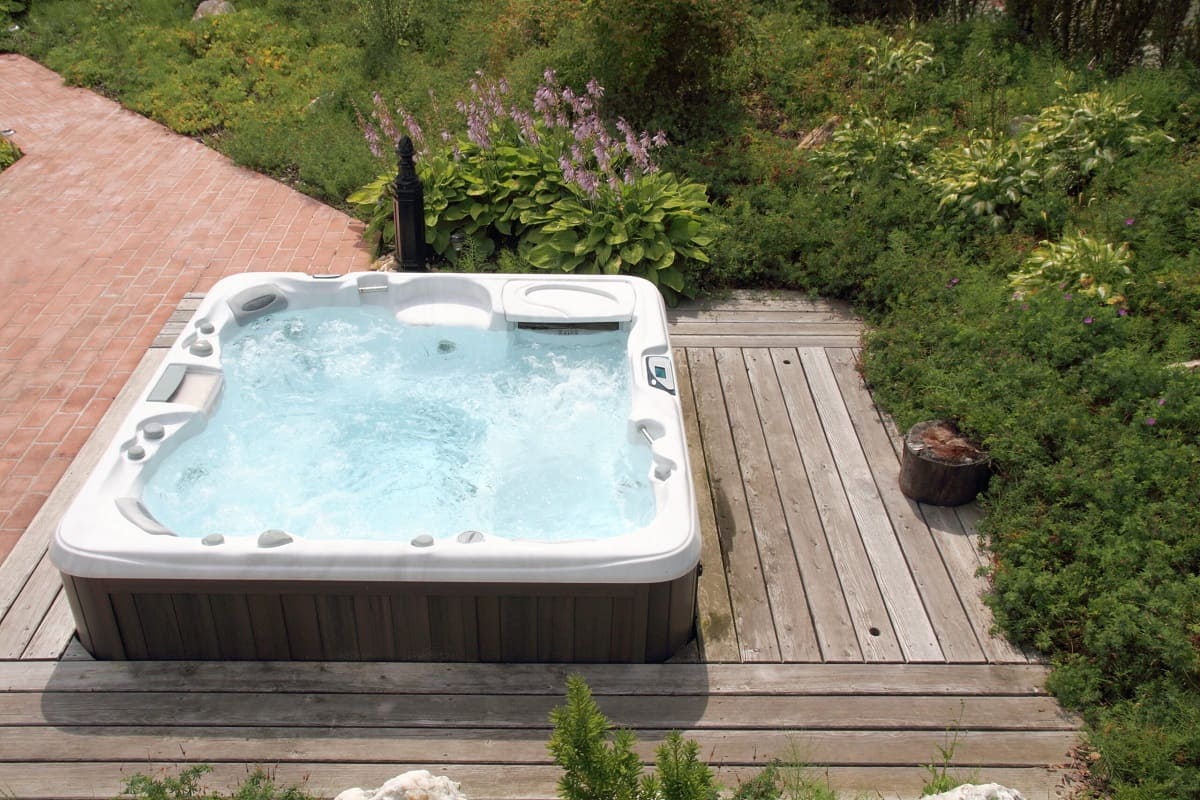

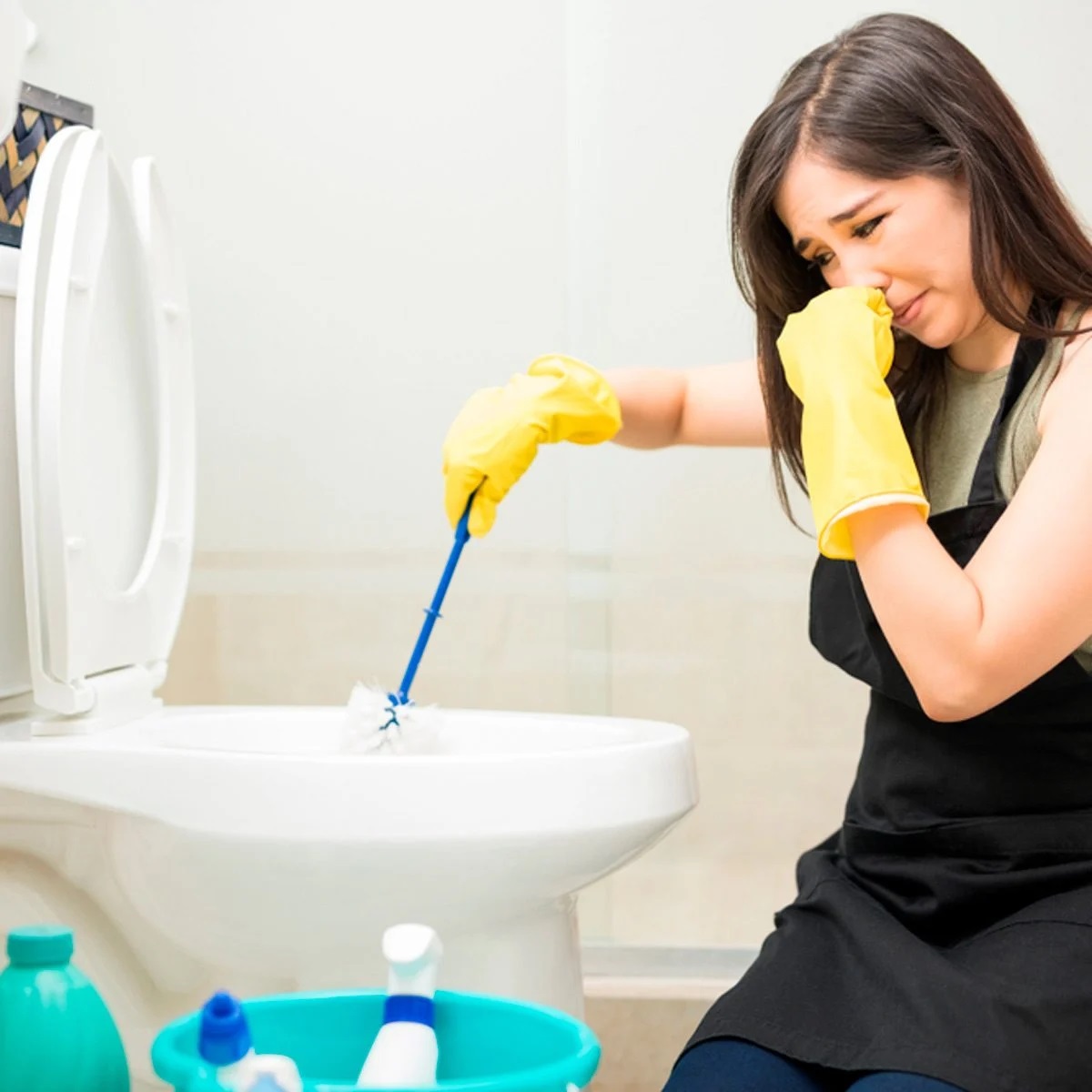
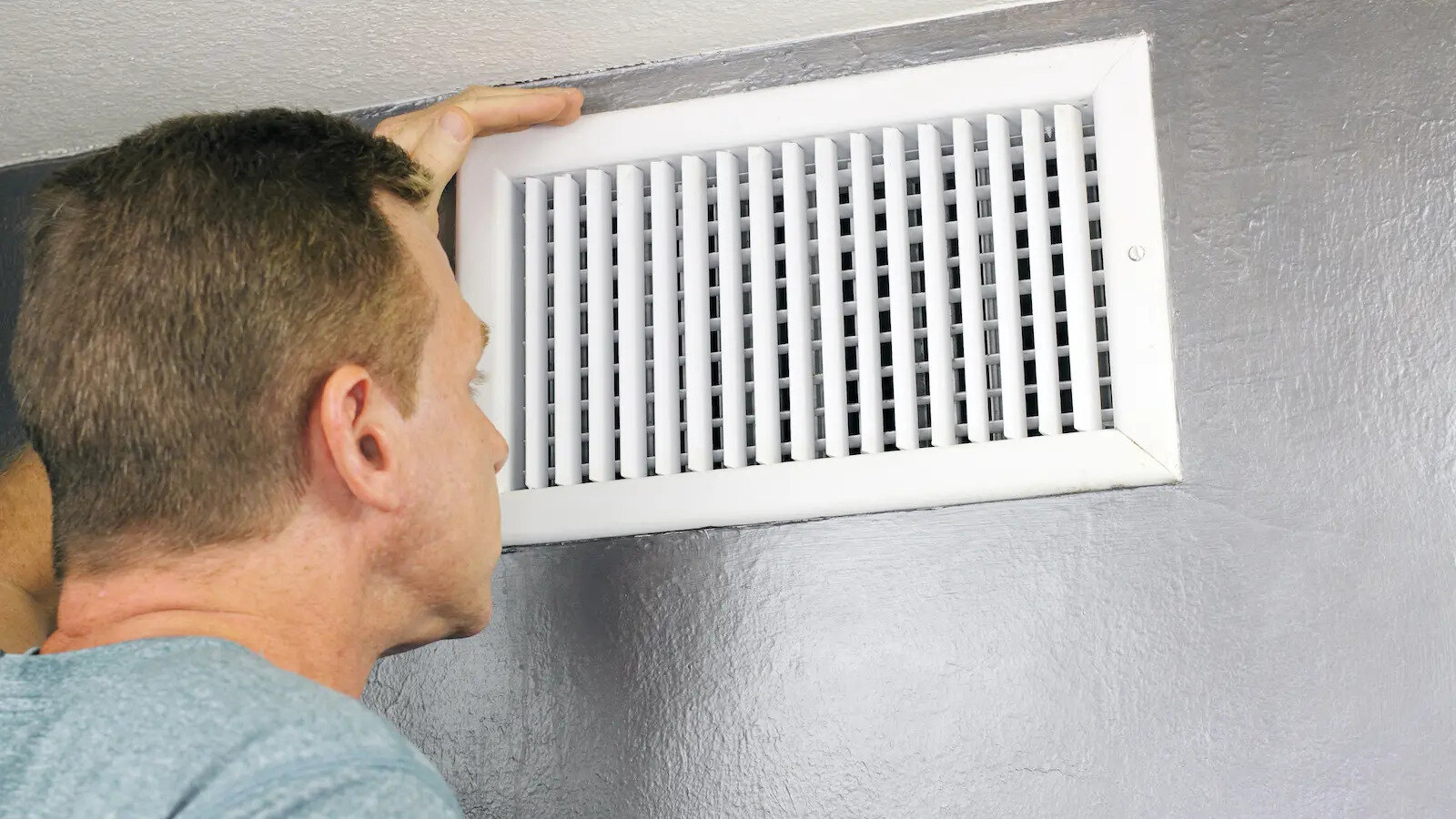
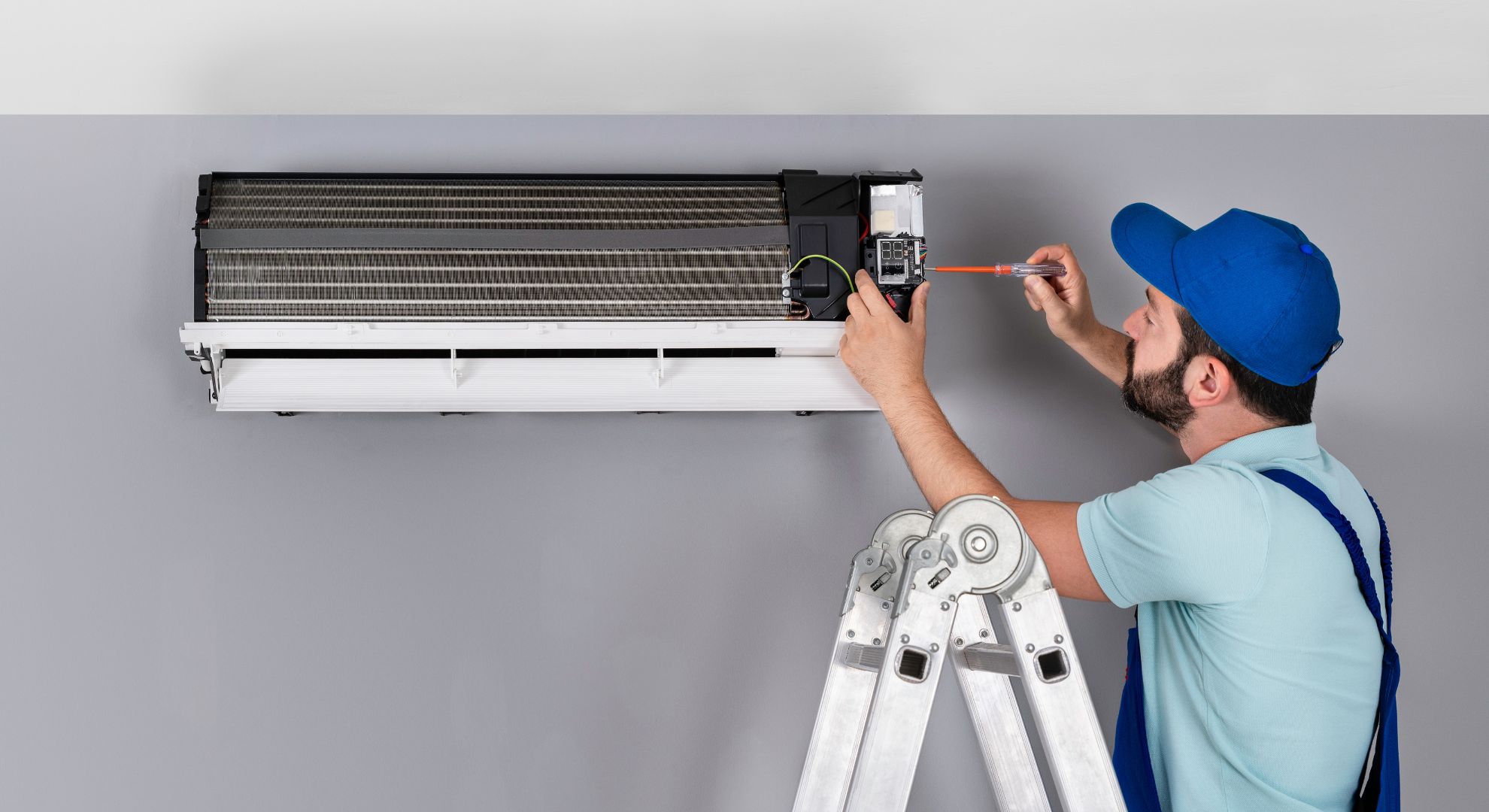
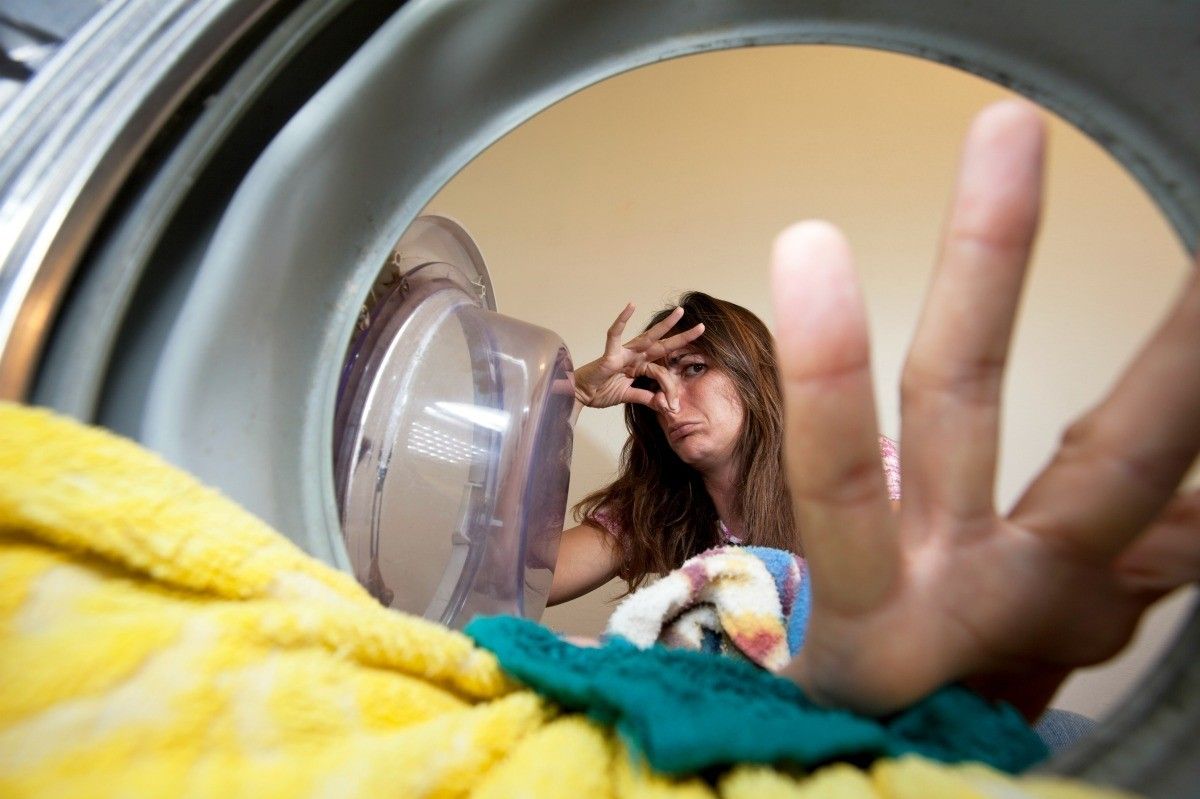
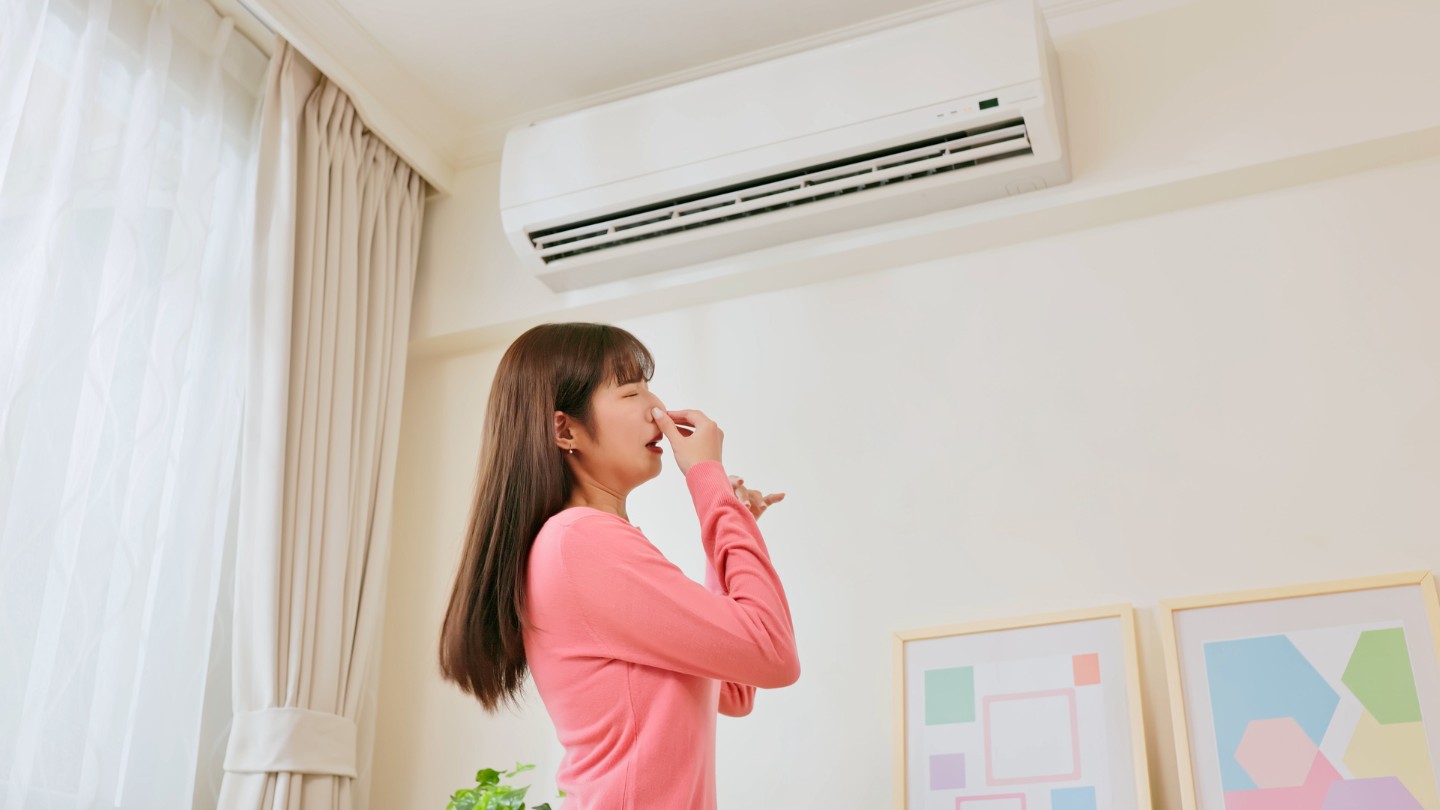

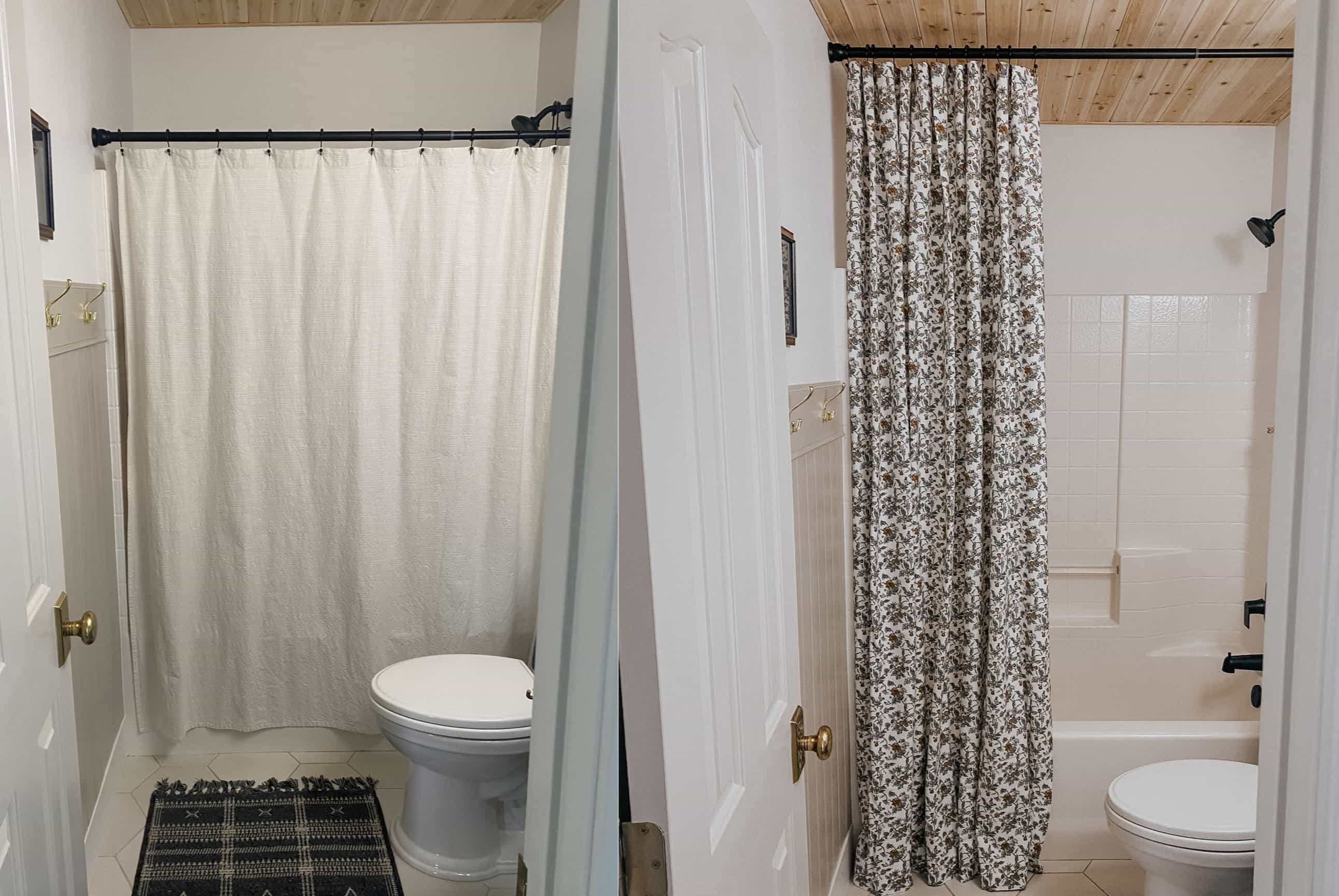
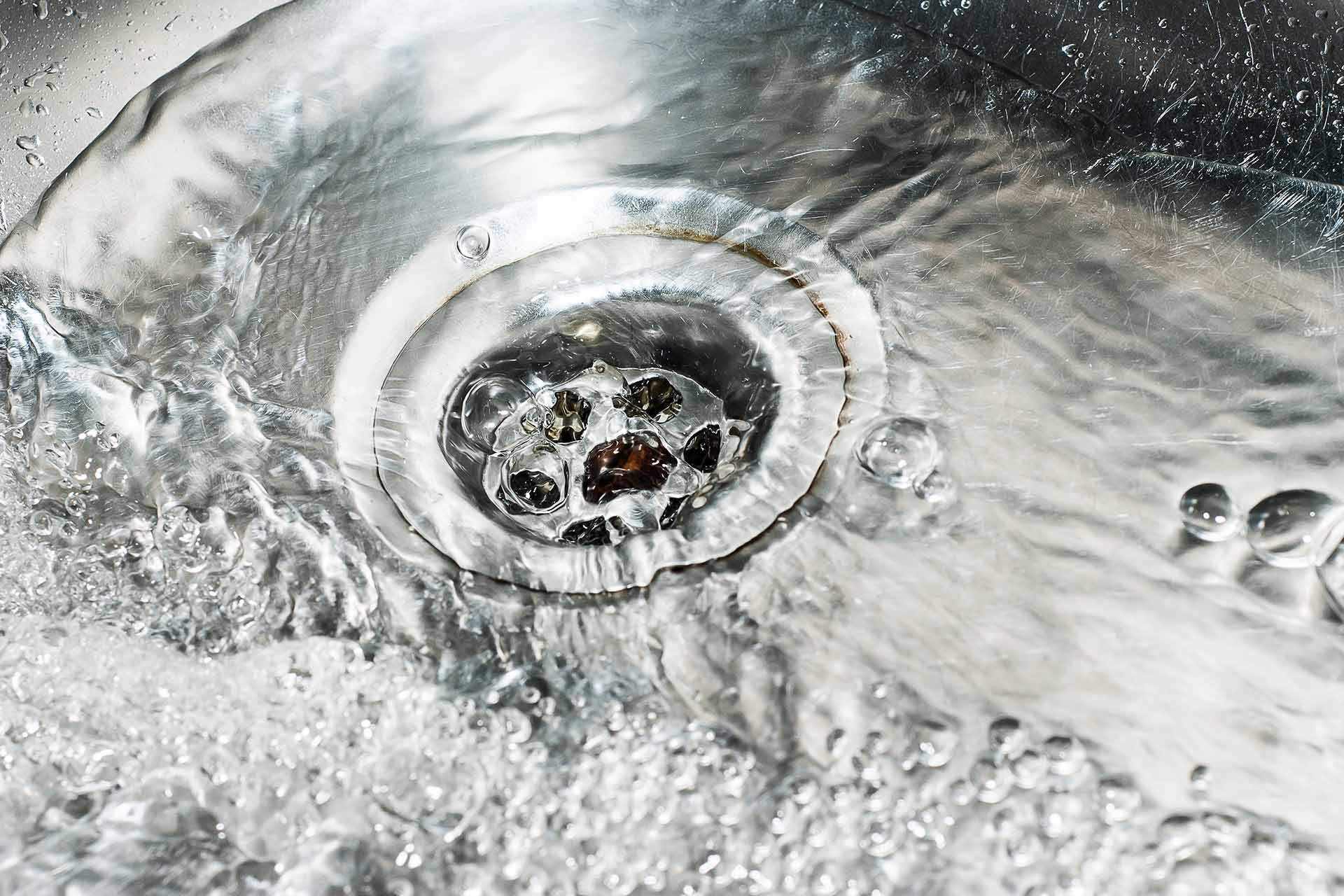


0 thoughts on “Why Does My HVAC Smell”